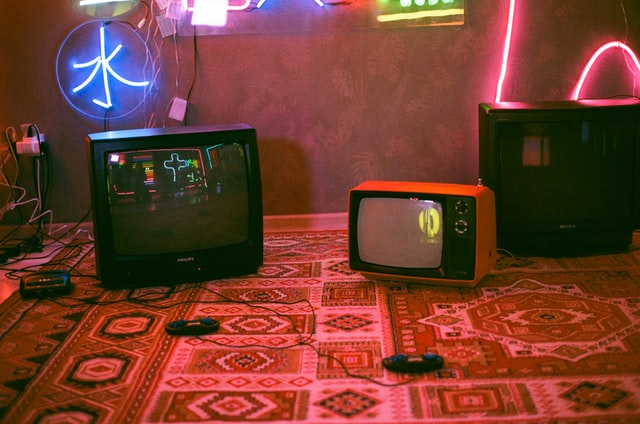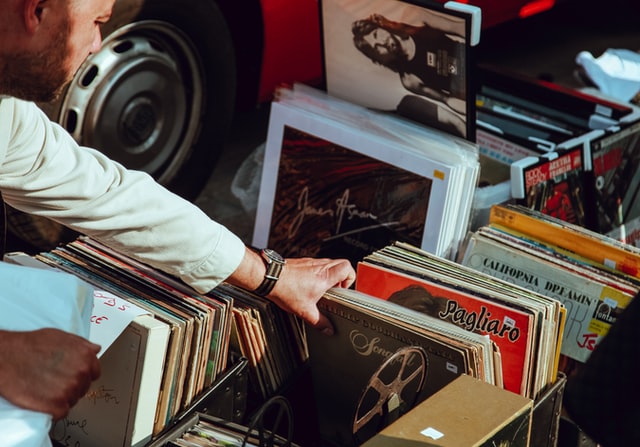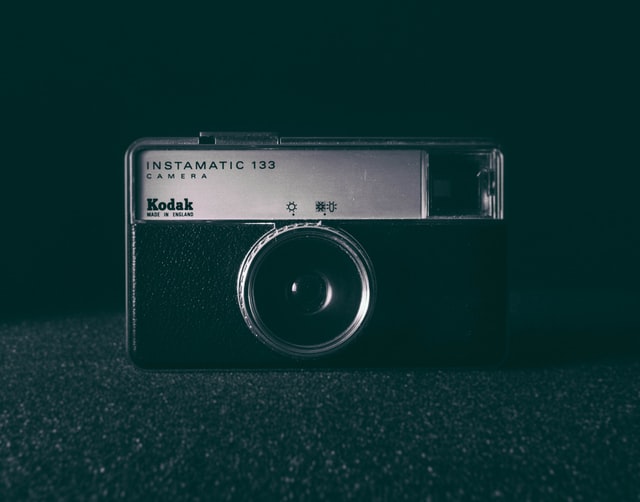The Retro Resurgence: Old Media Nostalgia in New Media

Amazon is selling disposable cameras for triple the price my ten year-old self could get them for in the early aughts. New stores have actually opened with the sole purpose of fixing ancient and broken record players.
My Instagram page on any given 2021 day looks like a curated collection of 1970s Polaroids. Classic gaming systems like Atari and Nintendo's Gameboy are in high demand again on Ebay. Apple, Silicon Valley's most iconic tech giant, has created their new iPhone to look like the iPhone 5 model released eight years ago.
It feels like, in this hyper-progressive technological era, we are craving less connected days.
The Matrix Re-Re-Loaded
Media these days is a daunting, ephemeral swirl of connectedness. As a society we are constantly plugged in- The Cloud is our pied-à-terre. The trail of our digital data footprint is being tracked like Hansel and Gretel to breadcrumbs, and personal FBI agents could be lurking behind our laptop webcams at any time, watching and studying us.
Gen-Z in particular seems unable to detach from the technology they have been primed to accept from an extremely early age (did you hear about Zuckerberg's plan to make a 13-and-under Instagram?). We need a break. It makes sense then, that perhaps our most tech-savvy generational cohort is hopping on board the retro express, joining the hipster millennials and Boomers in their quest to bring back "old" media.
Photo by Clem Onojeghuo on Unsplash
It's a Mad Tech World
Media itself is cyclical, and it's usually met with a bit of hesitation at first. Not only is it complicated and different from what we know (change is hard), but the very notion that media trends are cyclical points to the fact that eventually, any new tech will become obsolete. New, flashy technology comes in with a boom, and inevitably dies out with the introduction of something newer and flashier to replace it. We're talking to you, Steve Jobs. Perhaps in an similarly cyclical way, nostalgia for old technology accompanies the fear and uncertainty new technology undoubtedly ushers in. When will my mom stop asking for my help with her new computer? Why is my iPhone bursting into flames? What the $*@% are NFTs?
As a society, perhaps we want to slow the rapid technological process. We are craving permanence, and we can find comfort in the fact that older forms of media will never go out of style or run out of battery. Kindles can break. Your iPad will eventually run out of juice. Physical books have a stability and continuity that their digital counterparts do not.
Authenticity in Short Supply
Along with its ability to stay relevant, old technology has an authenticity that new technology does not. Older gadgets have a real-life feel to them, a physical presence with which the transient nature of the latest and greatest cannot compare. The grooves on a vinyl produce a unique sound quality that is hard to recreate through our AirPods.
Social media in particular can be a very artificial place. Photoshopping and filtering make it impossible to distinguish real from fake, and the presentation of hyper-idealistic versions of ourselves makes these sites a cesspool of constant comparison and insecurity, body objectification, and reality-warping.
Even on my worst days, Snapchat has a filter for me to instantly erase my pesky under-eye bags and new pimple that showed up that morning. You had a fight with your boyfriend yesterday while apple picking. He likes Granny Smith, you insisted on Pink Lady. But you still posted that cute photo you took among the trees, so your aunt Shelly on Facebook thinks everything is kosher. The diversion between our real and online selves is becoming extreme.
We've all been guilty of filling up our phone camera rolls with 60 versions of the same selfie and scrutinizing each one relentlessly to pick the best. One with the leg popped slightly out, one with the head turned slightly more to the left, ok, now put your hand on your hip and purse your lips more. (Re-)enter the film camera. A simple Polaroid model itself is relatively affordable, but the film runs you about a dollar a picture. The sheer cost of film works to eliminate the ability to photo-binge- it's a one and done situation, and cannot be altered once printed.
Photo by Sophia ConstantinoA Crisis of Individuality
Not everyone has the same incredible leather blazer you found in that obscure Le Marais vintage store, or has your great grandmother's hand-written recipe book, but almost everyone you know has an iPhone. When the latest model is released, there is a line around the block to buy it. There is a reason Etsy, with its custom and handmade products, has become increasingly popular, and calligraphy and embroidery how-to videos have started popping up on TikTok. Society wants something one-of-a-kind, something authentic, something different, for the love of God.
Older forms of media, while increasingly trendy, still invite us to be individual and creative. The ancient Kodak you bought at a flea market will not take the perfect photo with the perfect lighting, but it will give you a single piece of unfiltered, retro nostalgia that is uniquely yours and cannot be screen-shotted and reposted to the masses.
Photo by Jamie Street on Unsplash
A Break From The New
When we think of nostalgia, we characterize it as this innate reaction to yearn for the past, often triggered by the senses of smell and touch- things ironically less commonly found in today’s new mediascape.
There is something to be said, though, for the nostalgia of old media- a longing for simpler, less connected times, when technology was a tool, not the whole system. As a medium, vintage tech allows us the ability to be artistic and original. It helps us to disconnect by reconnecting us to the real world that may have been lost along the way.










